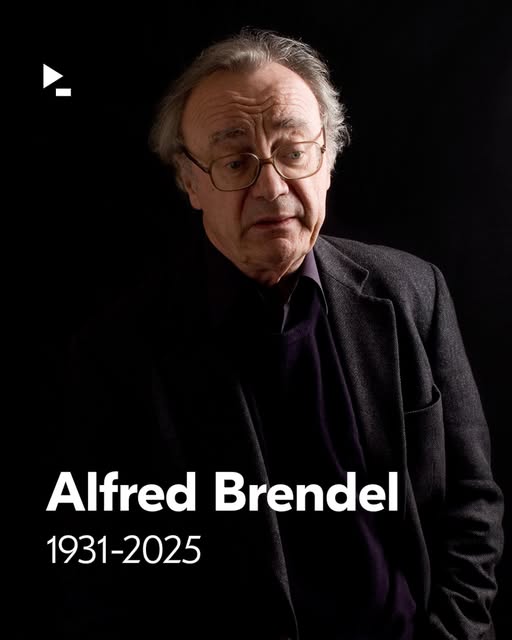Alfred Brendel, the renowned Austrian pianist who lived much of his later life in London, passed away at the age of 94, concluding a life that redefined both performance and understanding of classical music. Revered across continents for his exceptional interpretations of composers such as Beethoven, Mozart, and Schubert, Brendel’s career spanned over six decades, marked by a distinct intellectual rigor and artistic sensitivity. He was not only a pillar of the classical music world but also a significant voice in the literary arts, with his poetry and essays enriching the cultural landscape beyond the concert hall.
Born in what was then Czechoslovakia in 1931, Brendel’s early life was shaped by the tumultuous events of 20th-century Europe. However, it was the piano that would become his compass, guiding him from the war-torn landscapes of central Europe to the most prestigious concert halls of the world. By the time he settled in London, his reputation as a cerebral yet deeply emotional performer was firmly established. He became one of the very few pianists to record the complete solo piano works of Beethoven, a monumental undertaking that garnered critical acclaim and defined his artistic identity.
Brendel’s interpretation of Beethoven was often described as architectural—a precise, deliberate, and deeply analytical approach that never compromised on expressive depth. His performances eschewed flamboyance in favor of clarity, structure, and integrity, offering audiences a rare glimpse into the mind of a composer through the lens of a performer wholly devoted to the music’s inner logic. Critics frequently lauded his balance between intellect and emotion, often citing his rendition of Beethoven’s “Diabelli Variations” and the late sonatas as benchmark performances.
His influence, however, extended far beyond the confines of performance. Brendel was an author, philosopher of music, and teacher whose writings invited both musicians and general audiences to think more deeply about the nature of listening and interpretation. His essays, collected in volumes such as Music, Sense and Nonsense, fused wit with wisdom and were considered essential reading for anyone interested in the mechanics and mysteries of musical art. His poetry, too, reflected his whimsical, often surreal sense of humor, providing a counterpoint to the seriousness with which he approached his primary art form.
The loss of Brendel is not merely the passing of an individual but the end of a particular lineage of pianistic thought. He represented a vanishing era when musical interpretation was as much about scholarship as it was about performance. His refusal to pander to popular taste, combined with an unwavering commitment to intellectual honesty, earned him both ardent admirers and critical scrutiny. Yet, even those who challenged his interpretations often conceded his unparalleled influence on the modern understanding of the classical canon.
As a mentor, Brendel was equally impactful. Many of today’s leading pianists credit him with shaping their artistic paths. He was known to be generous with his time and insights, conducting masterclasses that became legendary for their depth and intensity. These sessions often transcended technical instruction to become philosophical discussions on art, life, and the eternal struggle for truth in performance.
In recent years, Brendel had largely retired from public performance, choosing instead to focus on writing and teaching. However, his legacy remained palpable in the concert world. His recordings continued to sell robustly, and his writings were frequently cited in scholarly works and conservatory curricula. His passing thus leaves a void not just on stage but in the very intellectual fabric of classical music.
Tributes have poured in from across the musical world, with orchestras, fellow pianists, and critics expressing their sorrow at the loss and their gratitude for his contributions. In London, where he spent much of his final decades, several major venues have announced plans for memorial concerts and retrospectives to honor his work. His presence had become a fixture in the city’s cultural milieu, and his absence will be deeply felt.
Alfred Brendel’s death at 94 marks the conclusion of a remarkable journey through music, thought, and language. His life was one of relentless pursuit—not of fame, but of meaning. As audiences and scholars revisit his recordings and writings, they will not only encounter a brilliant musician but a thinker and poet who saw music as a vital, living conversation between the past and present. The echoes of his interpretations will continue to shape performances for generations to come, ensuring that while his voice may be silenced, his insights will endure.

